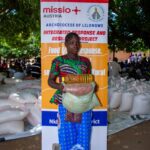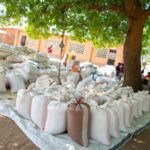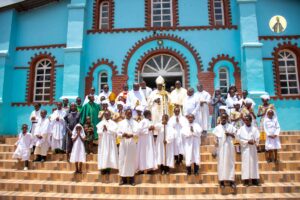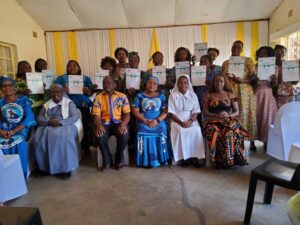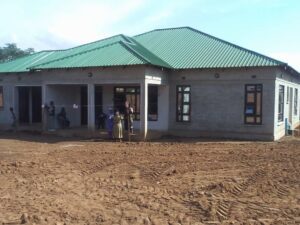Flood Relief Project Bears Fruit at St. Barnabas – Dwangwa Parish (Malawi)
Communities affected by floods, particularly those at St. Barnabas – Dwangwa Parish, are now cultivating a more secure and sustainable future with a comprehensive support and training provided by the Catholic Development Commission of the Archdiocese of Lilongwe (CADECOM), in partnership with Missio Austria.
Launched in December 2024 at the request of Archbishop George Tambala, the project initially delivered emergency food aid before evolving into a powerful initiative focused on agroecological training, seed provision, and long-term food security.
In his remarks, the beneficiary farmer, Esau Banda says the change has been truly transformative.
“Previously, we lacked the knowledge needed to succeed in farming. Now, with the training we’ve received, we’re confident we’ll begin to harvest bumper yields,” Banda shared.
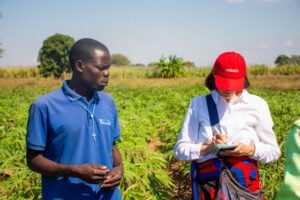
He attributes this confidence to lessons on crop diversification by saying that “going forward, each harvest will produce more because we’re growing a mix of crops. For instance, alongside maize, we now grow soya, beans, and tomatoes. This approach not only increases our income but also strengthens our food security. These farming techniques are now a permanent part of our lives.”
Banda also underscored his commitment to sharing this newfound knowledge with others who weren’t part of the training, so they can also benefit from the innovations.
He then recalled receiving initial relief support which included 50 kilograms of maize, 5 kilograms of beans, and 2 liters of cooking oil which “helped us survive the crisis.”
Additionally, Esau Banda confirmed that they are now able to grow cassava and sweet potatoes as part of their strategy to support their households, “something we learned through CADECOM’s training.”
Another farmer, Towera Mwasinga echoed stories of resilience and empowerment.
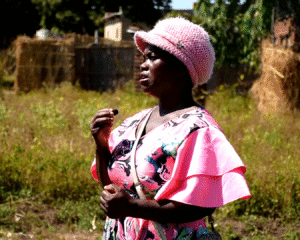
“Before this training, we didn’t know how to make organic manure. Now, we do—and we’re certain it will boost our harvests,” she stated, noting that expensive inorganic fertilizer was often out of reach.
Another participant, Josephy, highlighted the practical improvements gained when CADECOM took him to a training where he was taught about the importance of crop diversification, soil and water conservation and how these make his household resilient to climatic shocks.
“As a result, I began planting bananas, cassava, sweet potatoes, and started a vegetable garden. CADECOM even provided us with the planting materials,” he said.
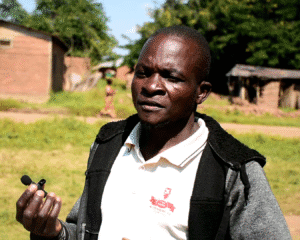
In addition to that, Josephy has also praised the guidance for his banana plantation as “before their training, I had already planted bananas, but their guidance taught me how to properly care for and improve productivity. For example, I now ensure no more than four suckers grow from each banana plant so there’s enough space for better yields. I also maintain a small vegetable garden, which provides the household with fresh vegetables without having to spend money at the market.”
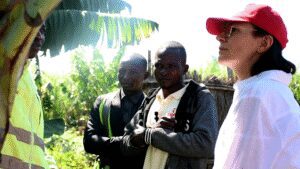
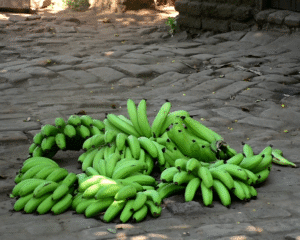
Another farmer, Kumwenda reinforced the benefits of adopting sustainable practices at which they were also encouraged to grow local crop varieties as they are more resilient to drought and other farming challenges.
He also detailed their newfound ability to create homemade pesticides: “We were taught how to prepare homemade pesticides using local materials instead of buying from stores. The recipe includes water, soap, hot chili, and a tree known as Katupe. You can also add aloe vera or any other bitter trees. The ingridients are chopped and ground then, mixid with water, the mixture is then left to dissolve for thirty minutes before it is applied to crops. This knowledge has helped us save money.”
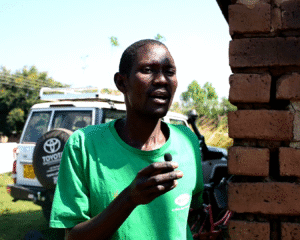
The community’s journey was not without significant challenges. As a beneficiary recalled of the flood experience: “When the floods hit, we were forced to evacuate our homes and seek shelter at a nearby school, then relocated to a camp, where we stayed for about six weeks… Later, we established temporary shelters and brought our families back.” Despite returning, fear lingered: “Even after returning, we were constantly afraid of what might happen next, especially whenever we saw dark clouds. We are deeply grateful to CADECOM for their support and pray for blessings upon them. We hope they continue extending this kind of help to others as well.”
CADECOM Acting Secretary Madalitso Chilalire, speaking during a site visit with Missio Austria, reiterated that the project’s heart lies in agroecology.
“So, we are trying to work on the mindset of the people that they can have other food like sweet potato, cassava, fruits, like bananas that they can also use as carbohydrates as food to their households so that they should not only rely on maize which is nowadays becoming difficult to grow. So that is what we are doing in Madisi (Dowa) and in Nkhotakota and so far so good, the farmers are adopting.”
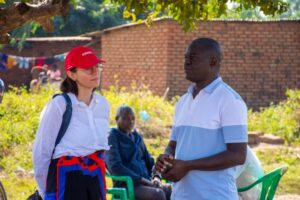
He added that CADECOM is now considering adding savings and loan initiatives to help farmers reinvest earnings and strengthen financial independence, believing that “the success we’ve seen so far can grow even further with the right support.”
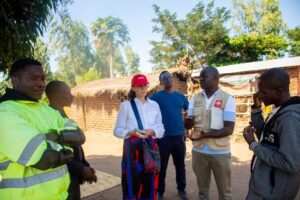
Lucia Bayer, representing Missio Austria, lauded the project’s comprehensive model as it is not just food relief but a long-term resilience.
Bayer has since emphasized the encouraging results that show farmers are well-prepared to build a better future.
“With proper training, seeds, and the possibility of savings programs, these communities are laying the foundation for a better future,” she said.
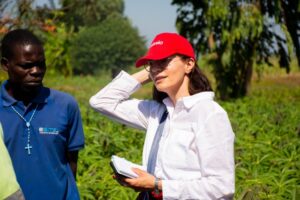
She concluded by stating, “I would assume this is just the starting point and it can grow, because when they learn how to go about the money, how to save and invest, and they will have the possibility to take a loan within the village bank, I believe that is the way for them to go, because then they will experience even a greater empowerment.”
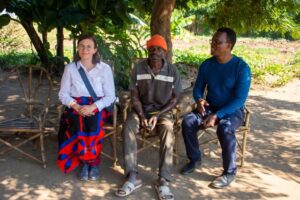
The project, active in both Madisi Parish (Dowa) and St. Barnabas Parish (Nkhotakota), has become a beacon of sustainable recovery, led by the very people it was meant to support.
By Eric Norman Mkwaira


